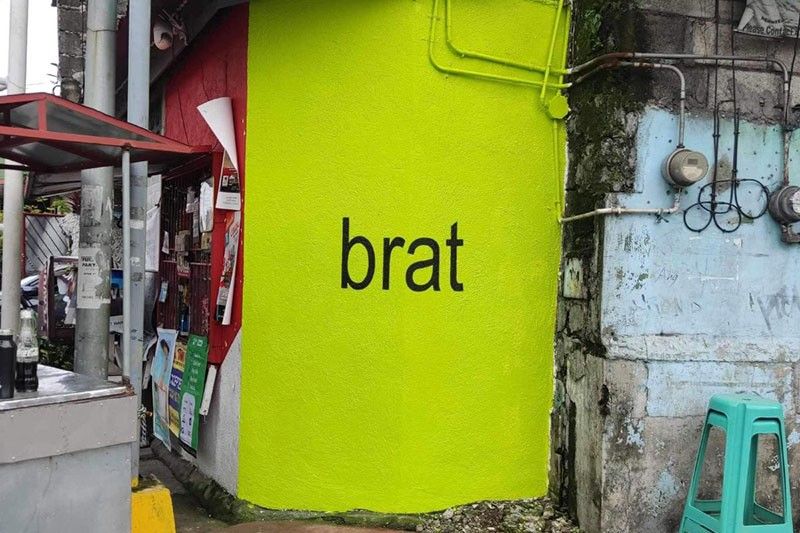New vocabulary of ‘brat’ Innocents

“For your generation, what does ‘tito’ or ‘tita’ mean?” asked Ms. Rellzah, 22, my Gen Z partner in Sapol-dwIZ. Of course us seniors use those to address the brother or sister of our parent.
Not for Gen Z. For those born 1997-2012, Ms. Rellzah said, “tito” and “tita” are adjectives, not nouns. They describe a kabarkada who has outgrown binge-drinking, or plasters Salonpas on aching muscles, or snorts Katinko for migraine.
Speaking of which, the Oxford English Dictionary has just added “binge-worthy.” Definition: engaging enough for a viewer to watch multiple episodes in succession.
Would 12-hourlong House quad comm hearings qualify as binge-worthy? “Omsim,” Ms. Rellzah assured, “Mismo.” But viewers feel “eguls” or “lugi” when invitees Bato dela Rosa and VP Sara Duterte don’t show up on summons date.
I recently read in an Audible book that “clouds,” for American grade schoolers, are “for raining on plants.” We oldies learned in elementary science that clouds contain rain. But for youngsters, clouds have function.
“Boogsh,” or stylized “bongga,” is among Gen Z words soon to be included in the local dictionary, said commissioner Benjamin Mendillo, Komisyon ng Wikang Filipino. Example: “Malacañang’s Christmas party was boogsh, even after giving PhilHealth zero budget.”
Other KWF entries: “dasurv,” from the English “deserve,” as in “good for you, dasurv mo ‘yan!” and “lavarn,” which is more encouraging than the worn out “laban,” as in, “Go on to Masters after graduation, lavarn mo na yan.”
“Estetik” has been Filipinized from the English “aesthetic,” as in, “Ang estetik ng Instagram photo mo.”
“Brat” is no longer negative. It now means an “estetik” trend defined by party-animal antics, cool-girl style and messy carefree vibe. The change arose from Charli XCX’s hit album “brat” on lime-green cover.
The British pop star described Kamala Harris’ campaign as “brat.” Too bad that Charli’s US fans weren’t able to make Kamala win.
“Dogshow” traditionally meant canine competition. But Tiktok Filipino comedienne Sassa Gurl gave it new reference to fans who create memes about her. “Dino-dogshow nila ako,” she remarked in 2021. Aside from playful comments, “dogshow” is a chill term for affront.
Youths love coining, part of their fun subculture. Parents think it’s attention-seeking.
In my teens, “ermat” and “erpat” referred to mother and father. “Tsikot,” “lespu,” “oblo” meant kotse, pulis, loob. We inverted all peso denominations: “sa-i,” “kosing,” “esgi,” “etneb,” “tasingkwen.” We didn’t have terms for P100, P200, P500 and P1000, all inexistent bills then.
Gen Zs shorten words, which spread fast among English speakers worldwide, especially those “chronically online.” “Rizz,” contracted from “charisma,” is now in Cambridge, Merriam-Webster and Collins dictionaries. “Sus,” for “suspicious,” is in all three, plus Oxford. “Delulu,” from “delusional,” is in Collins.
“Win” and “lose” are already short. But trust Gen Zs to prefer the even shorter “W” and “L.” It’s not only in texts, as in, “Filipinos suffer a big L during floods.” But also in, believe it or not, conversations, as in, “Politicos get a big doubleU from pork barrels.”
“Goat” in my time was never used to describe a bishop, mayor, general. It meant “a failure,” as in, “That flunkee was our class goat.” Gen Zs now use “goat” for admiration: “For me, Carlos Yulo and Hidilyn Diaz are the Greatest Of All Time.” Try it on your boss for a raise: “Sir, you’re the GOAT.”
Some meanings have become far out. “Slay” sends chills down the spine when talking about tok-hang of 2016-2022. Now “slay” is “Informal – to greatly impress or amuse someone.” Check Oxford, Cambridge, Merriam-Webster, Collins.
Online platforms restrict certain words. Gen Zs go around it via misspelled codes: “seggs” for sex, “corn” for porn, “grape” for rape.
I particularly like three words taught by Ms. Rellzah:
• “Awit”, the combination interjection for “aww, ang sakit!”
• “Shot puno!” meaning cocktail time with glasses full.
• “Walwal,” what you become after a dozen or so shot puno.
The Economist’s word of the year 2024 is for all generations in all countries under bad rulers: kakistocracy, government by the worst. Greek etymology: kakistos or “the worst” and kratia or “rule.”
Usage: In the 2022 presidential-congressional-local election, Filipinos voted for a kakistocracy.

* * *
Catch Sapol radio show, Saturdays, 8 to 10 a.m., dwIZ (882-AM).
Follow me on Facebook: https://tinyurl.com/Jarius-Bondoc
- Latest
- Trending



























